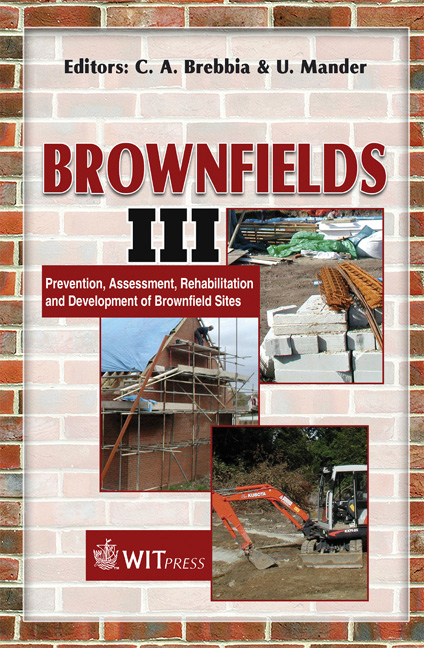What Constitutes Success In Brownfield Redevelopment? A Review
Price
Free (open access)
Transaction
Volume
94
Pages
11
Published
2006
Size
430 kb
Paper DOI
10.2495/BF060051
Copyright
WIT Press
Author(s)
T. Silverthorne
Abstract
This review identifies and examines the different definitions of success that appear in the literature on brownfield redevelopment and discusses perceptions of: greenspace creation; economic issues; sustainability and success models. It concludes with some insights into what is currently perceived to constitute success in brownfield redevelopment. Brownfield redevelopment is generally acknowledged as one of the principal factors in ensuring that development is sustainable, but there is neither a benchmark standard nor a list of criteria by which success can be defined. In many redevelopments that have been judged, primarily by the developers, to be successful there is little correlation between the criteria on which the success has been claimed and the social or economic wellbeing of the local residents and success may in fact occur at their expense. Success is usually measured against the original objectives of the project where the focus is often more towards economic factors rather than social and environmental factors. All of these variables make it very difficult to generically quantify success in brownfield redevelopment. Keywords: evaluation, success, brownfield redevelopment, sustainable development, urban greening, green space creation. 1 Introduction This literature review was carried out using internet searches and on-line databases such as Web of Knowledge. The review identifies and examines the different definitions of success for brownfield redevelopment that appear in the literature. The search focused on the published literature contained in journals, papers and reports of the past ten years predominately from Europe and North
Keywords
evaluation, success, brownfield redevelopment, sustainable development, urban greening, green space creation.




